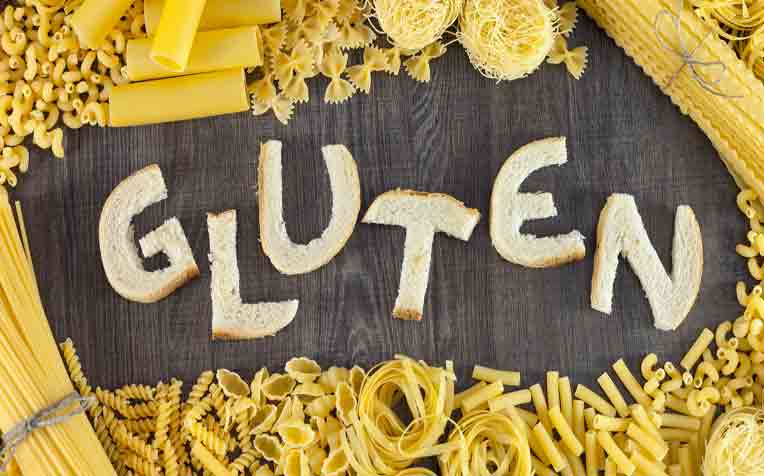1. Gluten intolerance requires a complete diet overhaul, avoiding wheat, rye, barley, and their derivatives to manage symptoms like bloating and diarrhea effectively.
2. Diagnosis involves blood tests to differentiate from celiac disease; treatment is solely a gluten-free diet, tailored by a dietitian.
3. Symptoms vary in severity; celiac disease, a more severe form, damages the intestine and requires strict gluten avoidance for life.

Manage gluten intolerance by avoiding all products containing wheat, rye and barley (e.g. pastas and breads).
A gluten-free diet may be a fashionable way to stay healthy or even maybe lose weight, but for some people – those with gluten intolerance – it is the only way to control their bodies’ allergic reaction to gluten.
Dietitians do not know the exact cause of gluten intolerance but it is often hereditary. People with gluten intolerance need to give their diet a complete overhaul and eliminate gluten from their diet.
Gluten is a protein found in wheat, barley, oats and rye, and is commonly used as a stabiliser, thickener and emulsifier in processed foods.
What you need to know about gluten intolerance
Gluten intolerance is a digestive disorder resulting in a person reacting aversely to foods containing gluten.
Most people who suffer from gluten sensitivity experience symptoms such as diarrhoea, bloating and gas, explains dietitians from Dietetic & Food Services at Changi General Hospital (CGH), a member of the SingHealth group.
8 diet tips to manage gluten intolerance
Avoid all products containing wheat, rye and barley (e.g. breads, pastas).
Avoid baked foods (e.g. pies, cakes, cookies).
Read food labels carefully and avoid foods with dextrin, emulsifiers, stabilisers, corn starch, malt and modified wheat starch.
Check all seasonings, thickeners and marinades for gluten-containing additives.
Avoid processed foods and meats (e.g. luncheon meats, salad dressings, vegetarian mock meats, soup stocks).
Eat more whole grains – rice, white rice, millet, buckwheat, beans, seeds and nuts.
Increase your daily intake of fruits and vegetables.
Choose fresh meats, fish, poultry, eggs, and dairy products.
Making the switch to a gluten-free diet may be difficult initially as there seems to be a long list of foods to avoid. But there are now many gluten-free alternatives for pastas and noodles, such as soba, buckwheat and kelp noodles. There are also gluten-free flours made from potatoes, tapioca and arrowroot.
Symptoms of gluten intolerance
Gluten intolerance symptoms vary from mild to serious. They include:
Bloating and gas
Weight loss
Stomach upset
Nausea and vomiting
Fatigue and weakness
Some symptoms such as abdominal pain, gas and bloating may be caused by digestive problems and not due to gluten intolerance, so it is important to get this condition properly diagnosed.
Diagnosis and treatment for gluten intolerance
There is no cure for gluten intolerance. A gluten-free diet is the only effective treatment.
Go for a blood test to determine if you are really allergic to gluten before going on a gluten-free diet. Consult a dietitian who will carry out a nutritional assessment and then devise a proper meal plan suitable for you.
Gluten intolerance vs celiac (coeliac) disease
Gluten intolerance is due to sensitivity while celiac (coeliac) disease is an autoimmune disorder.
For persons with celiac (coeliac) disease, consuming gluten damages their intestinal lining, which generates an immune response that could cause inflammatory reactions in other parts of the body. Celiac (coeliac) disease is the most severe form of gluten intolerance.
Gluten sensitivity has been recognised as being less severe than celiac (coeliac) disease. People with gluten sensitivity do not test positive for celiac (coeliac) disease based on blood testing, and do not have damage to their small intestines found in those with celiac (coeliac) disease.
Symptoms of celiac (coeliac) disease
Those suffering from untreated celiac (coeliac) disease may suffer from malnutrition and small bowel ulcers. They also have a higher risk of developing gastrointestinal cancers.
Signs of celiac (coeliac) dsease include:
Chronic diarrhoea or constipation
Gas
Pale, foul-smelling stools
Recurring weight loss
Anaemia (usually from iron deficiency)
Abdominal pain
Early osteoporosis or fractures
Joint pain
Painful, itchy skin rash
These may suggest complications of the disease.
Ref. I23 (ed)
More articles you may be interested in:
Irritable Bowel Syndrome (IBS): How to Manage
Food Allergies in Children: How to Manage

















 Get it on Google Play
Get it on Google Play